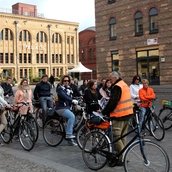
Wise Women – Evil Women: On Medicine, Magic & Belief in Witches in the Early Modern Period
In the 16th century, anyone who fell ill did not go to the doctor. Qualified doctors only practiced in the cities and at the royal courts. If people had fractures, sprains and open wounds, it was better for them to go to the surgeon or barber, as they knew more about practical medicine than a doctor.
In town and country, there were also herbal healers who specialized in different ailments. Their methods were limited to fumigation with herbs, laying on of hands and speaking. Herbal tinctures or ointments were also used. In addition to treating people, some also treated sick livestock.
Things got difficult when the treatment did not work or the illness got worse. If there were then disputes between neighbors, the person concerned could very quickly go from being a wise woman to an evil one. Since knowledge of how to cure illnesses was passed on from mother to daughter, an entire family was quickly suspected of practicing witchcraft.
(IN GERMAN)
Even coming from another city or the neighboring village could raise suspicion. In the early modern period, people attributed illnesses, cattle epidemics and extreme weather conditions to the work of witches and sorcerers. Martin Luther was no exception.
The tour takes place in the castle garden. Individual medicinal plants are presented on site, but you also learn what has to go into the witch's ointment so that the flight to the Brocken works.
In the old kitchen you can try some herbs and make yourself a tea.
Additional information
Price: €12.00
Reduced price: €10.00
Reduced price: €10.00
Dates
April 2025
| Mo | Tu | We | Th | Fr | Sa | Su |
|---|---|---|---|---|---|---|
1
|
2
|
3
|
4
|
5
|
6
| |
7
|
8
|
9
|
10
|
11
|
12
|
13
|
14
|
15
|
16
|
17
|
18
|
19
|
20
|
21
|
22
|
23
|
24
|
25
|
26
|
27
|
28
|
29
|
30
|


